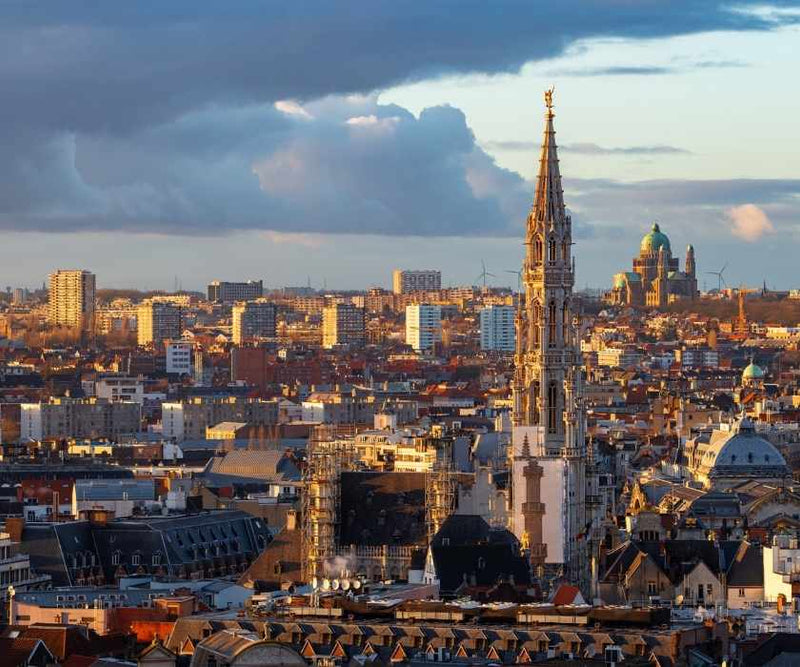Is the air quality good in Brussels?
On October 1, 2025 at 5 AM PT, air quality in Brussels, Belgium is poor with an AQI of 102. The city is currently ranked 4th among the most polluted major city in the world.
This level of pollution is considered a risk to health, particularly for vulnerable populations such as children, the elderly, and individuals with pre-existing respiratory or cardiovascular conditions (1).
Other nearby cities are also impacted. Rotterdam ranked 10th, while Amsterdam ranked 11th, indicating a regional trend of elevated pollution levels.
Click here for a real-time air quality map of Brussels.
While the air quality conditions today are unusually poor, it is important to keep in mind that the average PM2.5 concentration in 2024 for Brussels was 8.9 µg/m³. This corresponds to an AQI of 37, which falls into the “good” category and was 1.8 times the WHO annual guideline of 5 µg/m³.
Brussels, Belgium ranked as the 4th most polluted major city on Oct 1, 2025 5 AM PT. Source: IQAir.
When will air quality improve in Brussels?
Forecasts indicate that air quality in Brussels is expected to improve later in the day.
Hourly air quality forecast for Brussels, Belgium on Oct 1, 2025. Source: IQAir.
However, pollution peaks have been occurring more frequently in 2025 compared to previous years, meaning that air quality can fluctuate rapidly depending on meteorological conditions and pollution sources (2).
Improvement will largely depend on:
Increased wind speed to disperse pollutants
Reduced emissions from local traffic and heating systems
Stable weather conditions that prevent further accumulation of fine particles
Air quality map of Brussels, Belgium on Oct 1, 2025. Source: IQAir.
What is causing poor air quality in Brussels?
The current poor air quality in Brussels is mainly due to elevated levels of fine particulate matter (PM2.5 and PM10) and nitrogen dioxide. These pollutants are primarily linked to:
Vehicle emissions from road traffic
Combustion from heating systems, particularly during colder months
Unfavorable weather conditions, including lack of wind, which limits pollutant dispersion
Recent reports also confirm that secondary particulate matter formation, combined with emissions transported from other regions, has contributed to the elevated levels being observed.
Long-term data shows that Brussels has implemented several measures to improve air quality, such as the Low Emission Zone and expanded public transport, but occasional pollution peaks continue to affect the region (1).
How can I protect myself from poor air quality?
Get a free air quality app for real-time air quality alerts and forecasts.
Shut doors and windows and set the HVAC to recirculate mode.
Contribute to your community’s outdoor air quality data.
Stay indoors when air quality is poor; if you do need to go outdoors, wear a KN95/FFP2 mask.
Run a high-performance air purifier to filter particles, gases, and other pollutants.
